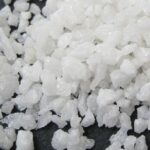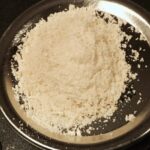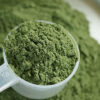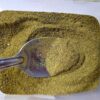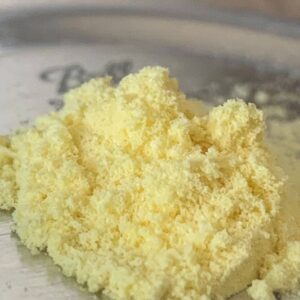Description
Mescaline For Sales, Buy Mescaline Powder Online Now
What is mescaline?
Mescaline is a psychedelic hallucinogen obtained from the small, spineless cactus Peyote (Lophophora williamsi), the San Pedro cactus, Peruvian torch cactus, and other mescaline-containing cacti. It is also found in certain members of the Fabaceae (bean family) and can be produced synthetically.
People have used hallucinogens for hundreds of year, mostly for religious rituals or ceremonies. Mescaline leads to rich visual hallucinations. From the earliest recorded time, peyote has been used by natives in northern Mexico and the southwestern United States as a part of traditional religious rites. It has an effect that is similar to LSD or psilocybin (magic mushrooms), other hallucinogenic drugs.
The top of the cactus above ground, or the crown, consists of disc-shaped buttons that are cut from the roots and dried. These buttons are generally chewed or soaked in water to produce an intoxicating tea. It can be consumed raw or dried but is extremely bitter. The hallucinogen may also be ground into powder for oral capsules, or smoked with marijuana and tobacco. The hallucinogenic dose is about 0.3 to 0.5 grams (equivalent to about 5 grams of dried peyote) and lasts about 12 hours. However, different doses can affect people in various ways, and doses extracted from plants can vary widely.
Mescaline is used primarily as a recreational drug and is also used to supplement various types of meditation and psychedelic therapy. It is classified as a schedule I drug in the U.S., making it illegal in all forms (including peyote); however, it remains legal in certain religious ceremonies registered by the Native American Church1,2, 3 Schedule I drugs have a high potential for abuse, no currently accepted medical use in treatment in the United States, and a lack of accepted safety for use under medical supervision.
Use Of Mescaline
“Trips” for the users may be pleasurable and enlightening or anxiety-producing and unpleasant (known as a “bad trip”). There is no way to know how a user’s experience may ultimately play out. Common effects after use may include:
- visual hallucinations and radically altered states of consciousness (psychedelic experience)
- open and closed eye visualizations
- euphoria
- dream-like state
- slowed passage of time
- laughter
- a mixing of senses (synesthesia, such as “seeing a sound” or “hearing colors”)
- pupil dilation
How to Recognize Mescaline
When naturally-derived, mescaline is found in the fruit or button-shaped seeds that grow on the outside of the cactus, which are cut off and dried and then eaten or sliced, boiled, and drunk as a tea. These buttons can also be dried and ground into an off-white powder put into pill capsules or smoked with tobacco.
Mescaline can also be produced through chemical synthesis. Mescaline sulfate is the pure form of the drug and appears as a white crystalline material.
What Does Mescaline Do?
The effects of mescaline last for 10 to 12 hours, although the use of mescaline as a sacrament takes place over two days. As a hallucinogenic or psychedelic drug, mescaline induces an altered state of consciousness where people experience altered thinking and perception. People often describe this state as enjoyable, euphoric, and dream-like.
Visual hallucinations are a common effect of mescaline use, and people often describe distortions in their experience of time.
What the Experts Say
There is little research on mescaline use and its effects. But there have been some limited studies on its frequency of use, the potential for overdose, and effects on mental health. Research suggests a few key findings.
Mescaline Poisoning Is Rare
A study of the California Poison Control System database for the years 1997 to 2008 showed that during that time there were only 31 cases of mescaline poisoning.1
Mescaline Use Is Not Linked to Mental Health Issues
A study published in PLOS One found that not only was there no link between the use of psychedelic drugs (which included LCD and mescaline) and mental health problems. In fact, the study found that the use of these substances was actually linked to a lower risk of mood disorders, psychosis, anxiety disorders, and psychological distress.2
Recreational Use Tends to Be Uncommon
Although peyote can be used by Native Americans legally for ceremonial purposes, a small proportion uses the substance recreationally. While the research available is not extensive, in one study of 89 Native American adolescents, only 10 (11.2%) reported the illicit use of peyote. Most of them said they had only used illicit peyote once or twice in their lifetime.3
Those who had used illicit peyote were more likely to report low levels of social support, low levels of self-esteem, and low identification with Native American culture, although they had similar levels of involvement in Native American traditional practices as those who did not use illicit mescaline.
Other Uses
There has been limited research on mescaline’s potential medical uses. Some speculation suggests that the drug may have been used in the treatment of alcoholism and depression, but more research is needed.
Common Side Effects
According to one study, commonly reported effects of taking mescaline include the following:
Agitation
Agitation—an emotional state of nervousness or nervous excitement—can occur out of nowhere when people take mescaline. It can also result from excessive worrying about other symptoms such as whether hallucinations are real or perceived heart problems.
Agitation can quickly turn to panic for people who have taken hallucinogens, which can lead to dangerous agitated behavior such as running off into unsafe environments like city streets with traffic, or rural areas with environmental hazards such as heights, swamps, etc.
Hallucinations
Users may see or hear things that are not there or have no actual basis in reality. Although hallucinations are an expected or even desired effect of hallucinogenic drugs, sometimes users find them much more troubling or frightening than expected. Although users typically know hallucinations that occur in a mescaline intoxicated state are not real, they can cause a lot of confusion and distress.
Tachycardia
Tachycardia, or rapid heart rate is defined as a heart rate of over 100 beats per minute (bpm). While there may not be severe physical consequences of tachycardia for mescaline users, a fast heart rate can sometimes create anxiety in users, which can further speed up heart rate. Users can feel panicky, particularly if they are worried that using the drug is causing heart problems.
Less common effects included seizures, loss of consciousness, and vomiting.
While these more serious effects aren’t common, it is important for users and potential users to be aware that taking these substances do carry these risks.
Signs of Use
Some possible signs that someone might be using mescaline include:4
- Changes in mood
- Difficulty sleeping
- Flushed skin
- Hallucinations
- Headaches
- Increased energy levels
- Lack of appetite
- Nausea or vomiting
- Poor coordination
- Presence of drug paraphernalia
Myths & Common Questions
Mescaline is sometimes confused with the Mexican alcoholic beverage mezcal, which, despite drug folklore, is made from agave, not a cactus, and does not contain mescaline. The worm that is sometimes found in a bottle of mezcal does not, as often purported, induce a mescaline high because it does not contain the drug either.
Although mescaline is not a particularly well-known street drug, it holds a special place in drug culture, particularly among psychedelic drug users who may believe that, like magic mushrooms and marijuana, psychedelic cactus are sacred plants and should be revered due to their origination in nature.
As mescaline is often thought of as a “natural” or “safe” substance, users may be less likely to report effects than with “chemical” substances, instead perhaps choosing to manage the effects of the drug without the support of health services.
Tolerance, Dependence, and Withdrawal
There is no current research suggesting that mescaline use leads to physical dependence, psychological dependence, or addiction. Tolerance does take place, however, and tends to occur quite rapidly. Tolerance means that people need to take more of the drug in order to achieve the same effects.
With repeated use, tolerance can occur in as little as three to six days. Cross-tolerance with other drugs such as LSD and psilocybin may also be possible.
How Long Does Mescaline Stay in Your System?
The amount of time mescaline stays in the system depends on factors such as an individual’s metabolism, hydration levels, body mass, and overall health. Mescaline can be detected in urine for between two to three days but can be detected by hair follicle tests for up to 90 days.5
How Long Mescaline Stays in Your System
Addiction
Mescaline does not appear to be addictive, although further research is needed to determine if addiction is possible.That said, any substance that distorts the user’s perceptions of reality is potentially harmful, as users can more easily misinterpret reality, or have accidents. In terms of toxicity, however, evidence may point to mescaline carrying a lower risk than many other recreational drugs.
Withdrawal
Quitting mescaline does not lead to physical symptoms of withdrawal, but people may experience psychological symptoms that lead them to seek out the drug. People sometimes utilize substances such as mescaline to self-medicate, to avoid life’s problems, or to cope with stress. Giving up mescaline use may require addressing underlying psychological issues first.
How to Get Help
Treatment for substance misuse and addiction often involves cognitive-behavioral therapy (CBT), a process that addresses the underlying thought patterns that contribute to maladaptive behaviors. It is not uncommon for a combined approach that includes CBT with individual psychotherapy, group therapy, and support groups.
There are no treatments for mescaline use that are currently approved by the Food and Drug Administration (FDA). Antidepressants, anti-anxiety medications, and other medications may be used to address the symptoms of underlying psychological conditions.
Talk to your doctor if you are concerned about your mescaline use. You can also contact SAMHSA’s national helpline at 1-800-662-4357 or search their online treatment locator for a referral to mental health services in your area.

